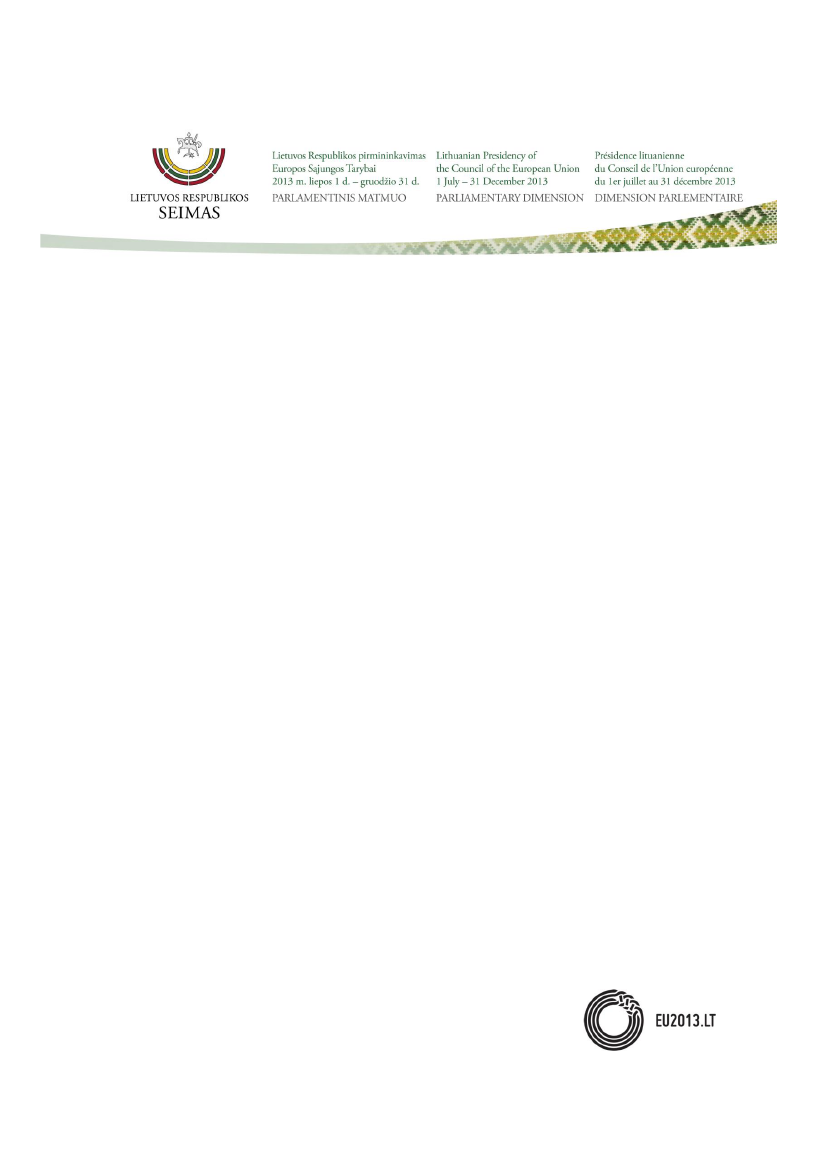
CONTRIBUTION OF THE L COSAC
27–29 October 2013, Vilnius
1. COSAC’s Contribution to the Strengthening of Interparliamentary Cooperation in the
European Union
1.1. On the occasion of its jubilee 50
th
plenary meeting in Vilnius, COSAC welcomes its founder
Mr Laurent FABIUS, Minister of Foreign Affairs of the Republic of France, former Speaker of
the French
Assemblée nationale,
and wishes to express its profound gratitude to Mr FABIUS for
his 1989 initiative and subsequent efforts in bringing about the establishment of the
Interparliamentary Conference of Bodies Specialised in European Affairs, known as COSAC.
1.2. As the oldest interparliamentary conference recognised in the Treaties of the European
Union (EU), COSAC remains committed to the strengthening of democratic legitimacy and
accountability in the EU, promoting the pro-active role of national Parliaments in the EU
decision-making process and cooperation between national Parliaments and the European
Parliament.
1.3. COSAC calls on the EU institutions to start a discussion with Parliaments on how to exploit
to full extent the possibilities provided in Article 10 of Protocol 1 of the Treaty of Lisbon.
2. State of Play of the Presidency of the Council of the European Union
2.1. COSAC takes note of the political agreement reached on 27 June 2013 at the highest
political level between the European Parliament, the Presidency of the Council and the
Commission on the Multiannual Financial Framework 2014-2020 and looks forward to the swift
conclusion of the complementary legal acts that will be decisive for making the new financial
framework operational, consistent, transparent and better adapted to the needs of the citizens of
the Union. COSAC is of the opinion that the EU budget should play a significant role in
stimulating growth, providing the needed investments in research and innovation, as well as
helping to address the problem of intra-EU macroeconomic imbalances. COSAC stresses that the
prime goal now is to ensure that the financial funds for the period 2014-2020 would reach the
European citizens and businesses in time.
2.2. COSAC welcomes
the agreement reached by the European Council in June 2013 on a €6
billion youth jobless fund, known as the “youth guarantee”, to implement the youth employment
package, yet stresses that further concrete steps are urgently needed. COSAC emphasises that
Gedimino pr. 53, LT-01109 Vilnius, LITHUANIA
Tel. + 370 5 239 6762 E-mail [email protected]